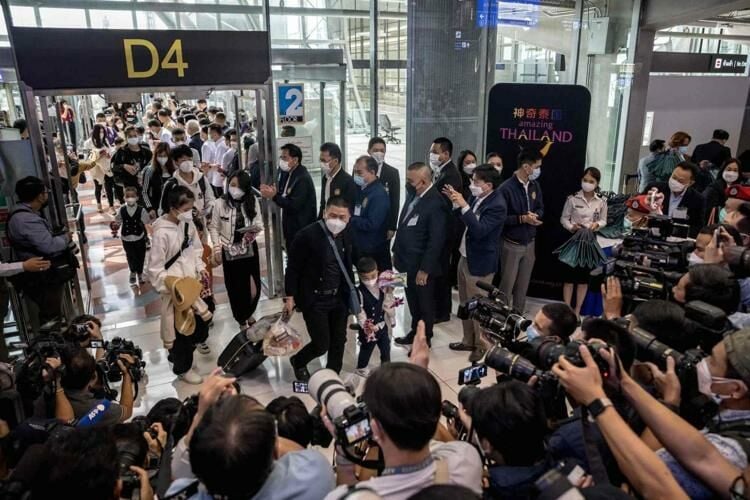Thailand’s tourism recovery under threat from safety concerns and sluggish Chinese economy

The future of Thailand tour packages hangs in the balance as safety concerns plague the minds of tourism operators in China. They forecast that tourism levels might only return to pre-pandemic figures by 2025.
Tourism bookings take an immediate hit whenever safety incidents occur in Thailand, and Chinese social media plays a significant role in the rapid dissemination of such news, according to Yu Ping, Southeast Asia manager at Shanghai Wan Guo International Travel Service.
“The sluggish Chinese economy is also causing a dent in the sales of tour packages that target the middle class,”
Highlighting the steady sales rate of tailor-made tours for upscale travellers. As a result, many operators have pivoted to domestic groups, which currently have more appeal than international travel.
Ping made these comments at the Association of Thai Travel Agents’ roadshow in Shanghai and Chengdu. She mentioned that her company’s Thailand tour packages currently sit at half the 2019 level, and although there is gradual improvement, she estimates it will take until 2025 for a full recovery.
Ping urged the Thai government to address safety concerns swiftly and extend the visa-free scheme for Chinese tourists throughout 2024 to attract more visitors.
Chinese economy
Jia Jianjun, general manager at Hubei in Journey International Travel Service, voiced a different perspective. He pointed to the weak Chinese economy as a potential dampener on tourist spending in the coming year. Yet, he considered the perception of Thailand as an unsafe destination to be the most significant hurdle.
Provided no major negative incidents occur next year, Thailand should remain a top overseas choice for Chinese tourists, Jia said. His company anticipates a full recovery in Thailand package sales next year, significantly sooner than other agents’ 2025 prediction.
Hubei in Journey International Travel Service has been mitigating risks by serving clients in Hubei, a secondary city in China, and plans to extend its reach to Shanghai or Beijing. The company offers both online and offline bookings with tailor-made packages.
Addressing the push by Prime Minister Srettha Thavisin for tourism in secondary areas, Jia acknowledged these locations could attract younger Chinese travellers seeking unique experiences. However, he suggested such packages might only work for smaller, tailor-made programmes, as they couldn’t rely on high volume for profit.
The Tourism Authority of Thailand has plans to host Chinese New Year festivals across five regions in Thailand next year, aiming to attract more visitors from mainland China to second-tier cities. Thanapol Cheewarattanaporn, managing director of Quality Express, suggested that the Thai government and provincial administration should offer incentives to Chinese tour operators, similar to the incentives Japan provided for foreign tour groups to visit secondary provinces.
Incentives could vary according to each market. For example, second-tier cities might need more appealing incentives to establish recognition at the initial stage, Thanapol proposed, reported Bangkok Post.
Latest Thailand News
Follow The Thaiger on Google News:


























